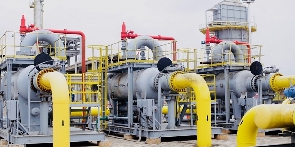As the world transitions to cleaner energy sources, natural gas consumption is on the rise in Africa.
The continent is rich in natural resources, with natural gas being one of its most valuable assets. Despite this wealth, Africa faces significant energy shortages, with millions lacking access to reliable electricity.
Currently, the continent’s natural gas consumption remains low compared to its potential, primarily due to infrastructural challenges and policy-related issues. However, many African countries possess natural gas reserves that could transform the energy sector, stimulate economic growth, and improve living standards.
Why natural gas matters
Increasing natural gas usage in Africa is essential for several reasons. It serves as a reliable and cleaner alternative to coal and diesel, which currently dominate the continent's energy mix. As natural gas usage expands, it will help alleviate energy poverty, foster the development of the power industry, and promote rural electrification.
In the global shift toward greener energy sources, natural gas acts as a bridge between fossil fuels and renewables. The future of Africa's energy landscape could significantly depend on natural gas, which offers a path toward economic growth, environmental protection, and sustainable development.
Natural gas also emits considerably less carbon than coal and oil, making it a viable option for meeting global climate commitments while supporting economic advancement.
Furthermore, many African nations heavily rely on imported petroleum, which strains foreign reserves and exposes their economies to volatile global oil prices. By harnessing indigenous natural gas reserves, these countries can reduce their dependency on imports, stabilize energy costs, and strengthen their economies.
Additionally, the development of natural gas infrastructure, such as pipelines and liquefied natural gas (LNG) terminals, could enhance regional energy trading and integration.
Top 10 African consumers of natural gas in 2025
According to recent data from the global analytics platform Global Firepower, which tracks energy and military metrics, the following countries are projected to be Africa’s top consumers of natural gas in 2025:
• Egypt – 60,089,000,000 Cu.M (13th globally)
• Algeria – 47,963,000,000 Cu.M (18th globally)
• Nigeria – 20,719,000,000 Cu.M (36th globally)
• Libya – 9,212,000,000 Cu.M (49th globally)
• Tunisia – 5,153,000,000 Cu.M (57th globally)
• South Africa – 4,487,000,000 Cu.M (60th globally)
• Ghana – 3,912,000,000 Cu.M (62nd globally)
• Ivory Coast – 2,635,000,000 Cu.M (73rd globally)
• Tanzania – 1,808,000,000 Cu.M (79th globally)
• Angola – 1,397,000,000 Cu.M (81st globally)
Implications for the future
The demand for natural gas in Africa is expected to continue rising due to population growth, urbanization, and industrialization. As countries strive to balance energy security with environmental sustainability, natural gas will likely remain a cornerstone of the continent’s energy strategy.
It is poised to play a crucial role in shaping a resilient, diversified, and sustainable energy future for Africa.
NAD/MA
Watch the latest edition of BizTech below:
Click here to follow the GhanaWeb Business WhatsApp channel
Business News of Monday, 14 April 2025
Source: www.ghanaweb.com













